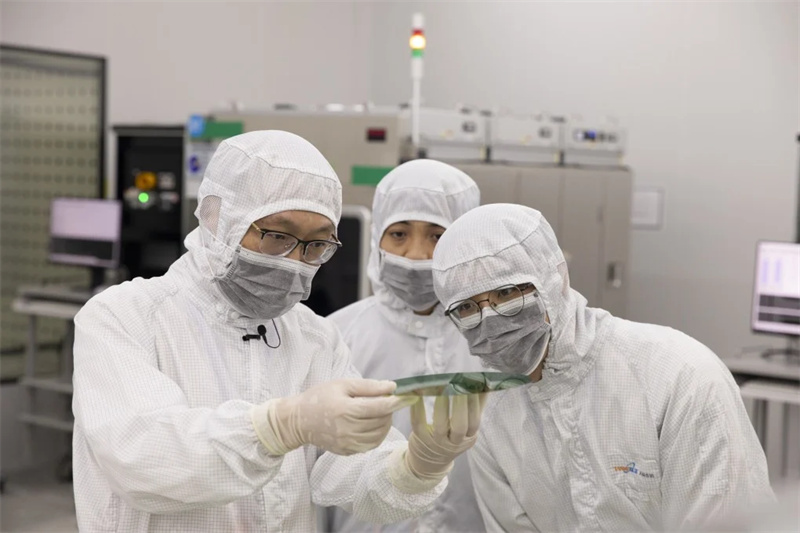On August 27, a joint research team led by Professor Xingjun Wang and Researcher Haowen Shu of Peking University, together with Professor Cheng Wang of City University of Hong Kong, published a breakthrough in Nature — the world's first adaptive all-band, high-speed wireless communication chip based on photonic-electronic integration. The achievement provides a disruptive hardware foundation for the practical deployment of 6G technologies.
The researchers introduced the concept of a "universal photonic-electronic wireless transceiver engine" and, using an advanced thin-film lithium niobate photonics platform, developed an ultra-broadband integrated chip capable of adaptive, reconfigurable wireless communication across frequencies exceeding 110 GHz.
Within a compact 11 mm × 1.7 mm footprint, the chip integrates key wireless signal processing functions, including broadband wireless-to-optical signal conversion, tunable low-noise carrier/local oscillator generation, and digital baseband modulation — achieving system-level integration in a miniature device.

The team further demonstrated a novel optoelectronic oscillator (OEO) architecture incorporating high-performance optical microring resonators. This approach enables precise frequency selection of oscillation modes, generating low-noise carriers and local oscillators at any point across the ultra-broadband spectrum. Unlike traditional multiplier-based electronic solutions, the OEO achieves real-time, flexible frequency reconstruction from 0.5 GHz to 115 GHz — spanning nearly eight octaves — while avoiding noise accumulation issues that degrade phase noise at high frequencies.
Experimental results show that the system supports ultra-high-speed wireless data transmission exceeding 120 Gbps, meeting 6G peak rate requirements. Crucially, thanks to the chip's broadband properties, the end-to-end wireless link delivers consistent performance across the entire frequency range without high-frequency degradation.
According to the team, this breakthrough removes key bottlenecks in harnessing terahertz and higher-frequency spectrum resources, marking a significant step toward the realization of next-generation 6G communications.
+86 191 9627 2716
+86 181 7379 0595
8:30 a.m. to 5:30 p.m., Monday to Friday
